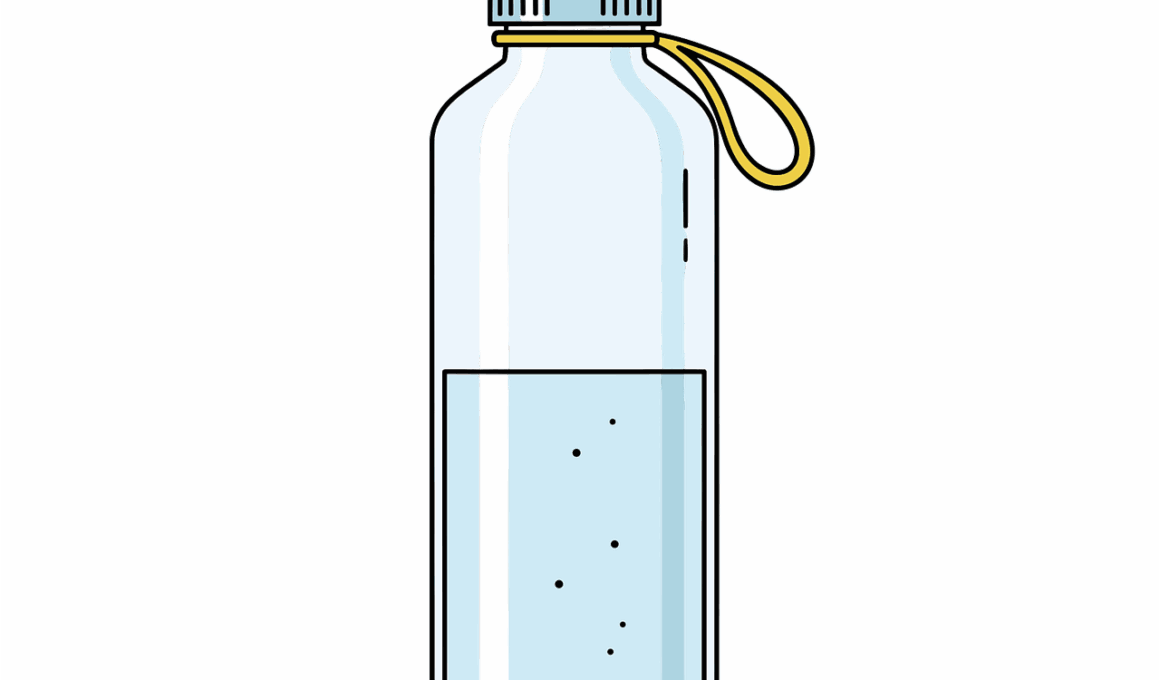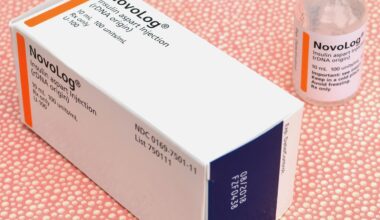Sports Drinks vs Water: Which is Better for Hydration?
When it comes to hydration during intense physical activities, many individuals often debate whether they should opt for sports drinks or stick with plain water. Sports drinks typically contain carbohydrates, electrolytes, and hydration-enhancing ingredients that promise improved endurance and recovery. Water, on the other hand, has long been praised for its simplicity and effectiveness in hydrating the body. Each option offers distinct advantages that cater to various hydration needs, especially when engaging in prolonged exercise sessions. For athletes and fitness enthusiasts, understanding these differences plays a pivotal role in enhancing performance and recovery. It’s essential to consider factors like the duration of the activity, sweat loss, and personal preference when choosing the best source of hydration. In some sports, such as endurance racing, the need for electrolyte replenishment pushes sports drinks to the forefront, while lower-intensity activities may just require plain water. This article will delve deeper into the characteristics, benefits, and potential drawbacks of both sports drinks and water to help you decide which option is optimal for your hydration needs.
Sports drinks designed for hydration are typically formulated with key ingredients such as carbohydrates and electrolytes. Carbohydrates, often in the form of sugars, provide a quick source of energy for athletes engaged in prolonged exercise. Electrolytes like sodium, potassium, and magnesium help restore the balance of minerals lost in sweat. This balance supports nerve function and muscle contractions, aiding recovery and performance. Additionally, sports drinks often contain flavoring agents to encourage consumption during laborious workouts. However, it is essential to note that many sports drinks are also high in calories and sugars, which can be detrimental if consumed in excess, particularly during rest periods. Therefore, athletes should be mindful of their intake and choose products that align with their specific energy requirements. While the allure of flavored hydration can be appealing, moderation is critical to avoid overconsumption of unnecessary calories. For shorter or less intense workouts, the simplicity of water maintains adequate hydration levels without added sugars or calories, emphasizing the importance of balance in hydration strategies for active individuals.
Advantages of Sports Drinks
One of the primary advantages of sports drinks is their ability to replenish essential nutrients that may be depleted during strenuous physical activity. This replenishment is especially relevant for those participating in endurance events lasting longer than an hour, where significant electrolyte loss can occur. The carbohydrates present in these drinks can prevent fatigue and sustain energy levels, allowing athletes to maintain peak performance. Furthermore, the taste of sports drinks may encourage athletes to hydrate more frequently, combating dehydration. Proper hydration is crucial for optimal performance, as even mild dehydration can impair physical and mental abilities. This is particularly important during intense competition or high temperatures, making sports drinks appealing to serious athletes. However, it’s equally important to balance consumption to avoid unwanted weight gain or gastrointestinal distress from excess sugar intake. The inclusion of electrolytes facilitates faster absorption of fluids compared to water alone, which is another reason athletes may prefer these specially formulated beverages during and after intense workouts or competitions. Choosing the right type of sports drink is vital, as not all are created equal when it comes to delivering the optimum benefits.
Despite their advantages, sports drinks also present some notable disadvantages. The high sugar content found in many of these beverages can lead to unnecessary caloric intake, which is detrimental for athletes focused on weight management. Consuming sports drinks outside of rigorous exercise can contribute to unwanted weight gain, particularly if their energy demands do not necessitate replacement of lost calories. Additionally, overconsumption of sugars can possibly result in gastrointestinal discomfort or digestive issues, detracting from an athlete’s performance. In contrast, water provides a calorie-free alternative that effectively hydrates without introducing additional sugars. This makes plain water an excellent choice for individuals who engage in moderate physical activity or those simply seeking to stay hydrated throughout the day. Athletes should evaluate their hydration strategies based on their specific activities and goals. For hydration outside of extended athletic endeavors, water serves as the most suitable option, allowing athletes to maintain hydration while avoiding complications associated with high sugar content. Striking the right balance is critical for sustained health and performance, whether through scientific formulations or natural sources.
Effects on Performance
The choice between sports drinks and water significantly influences athletic performance. Studies have shown that athletes who consume sports drinks during prolonged exercise experience improved endurance compared to those relying solely on water. The added carbohydrates provide an energy boost essential for maintaining performance levels during extensive training and competition. However, the benefits of sports drinks generally stem from their specific context of use. For shorter activities or less intense workouts, water is usually sufficient to maintain hydration without the need for additional carbohydrates or calories. It’s vital to assess the intensity and duration of the exercise to determine the best hydration strategy. Individuals engaging in high-intensity training or competitions should consider sports drinks as part of a comprehensive hydration plan. Furthermore, recovery is also impacted by hydration choices, as proper replenishment affects muscle repair and energy restoration post-activity. When wrestling with hydration decisions, athletes should consider their unique needs, as choosing the right source can make all the difference in achieving both short-term performance goals and long-term fitness success.
In conclusion, the effectiveness of sports drinks versus water ultimately depends on individual needs, exercise types, and goals. For athletes participating in extended and intense endurance activities, sports drinks are often the ideal choice due to their carbohydrate and electrolyte content. Conversely, water remains the best option for standard hydration needs and for those engaging in lower-intensity workouts. Both beverages have their place in a comprehensive hydration strategy. Athletes should listen to their bodies and respond to hydration cues, which can guide them in selecting the appropriate beverages. If unsure about which hydration method best suits their needs, athletes may benefit from consulting hydration specialists or sports nutritionists. Adequate hydration not only aids in optimal performance but also contributes to overall health and well-being. Managing hydration intelligently can help maximize workout effectiveness, prevent fatigue, and support better recovery periods post-exercise. Ultimately, a thoughtful hydration approach ensures that individuals remain feeling their best and performing at the highest level possible for their specific activities and goals.
Key Takeaways
In summary, choosing between sports drinks and water largely hinges on individual circumstances, activity levels, and personal goals. Key takeaways include the understanding that sports drinks offer quick energy supplies and electrolyte replenishment ideal for high-intensity or long-duration workouts. Water serves as an excellent choice for regular hydration throughout the day and in lower-intensity exercise scenarios. Athletes must discern their unique hydration requirements to optimize their performance and recovery strategies. Moderation in consumption is crucial to prevent complications like weight gain or digestive problems. Instead of viewing these options as mutually exclusive, consider integrating both into your hydration strategy depending on the activity. Sustainable hydration habits lead to better overall well-being. Building awareness of one’s personal hydration needs aids in making informed decisions about when to opt for a sports drink versus plain water. Understanding these nuances ensures athletes are well-prepared for both training and competition. Ultimately, being well-informed allows individuals to reach their optimal performance levels while maintaining adequate hydration practices.
Both sports drinks and water play significant roles in hydration for different scenarios. Selecting the right option is essential to optimize performance, particularly for athletes or those passionate about fitness. Whether opting for the energy benefits of sports drinks or the simplicity of water, making educated decisions based on personal needs and activity levels ensures effective hydration strategies. Ultimately, prioritizing hydration can enhance overall health and performance. By understanding the specific functions of sports drinks and plain water, athletes and fitness enthusiasts alike can develop personalized hydration tactics that suit their unique requirements. As a result, they maximize their performance, maintain energy levels, and minimize fatigue. Incorporating both hydration options allows for a balanced approach to staying hydrated, adapting to various demands placed on the body during exercise and daily life. Recognizing your hydration needs is key to success in both athletic endeavors and everyday activities. Those who are mindful of their hydration choices will consistently perform better and reap the rewards of their efforts in physical fitness and overall health.


